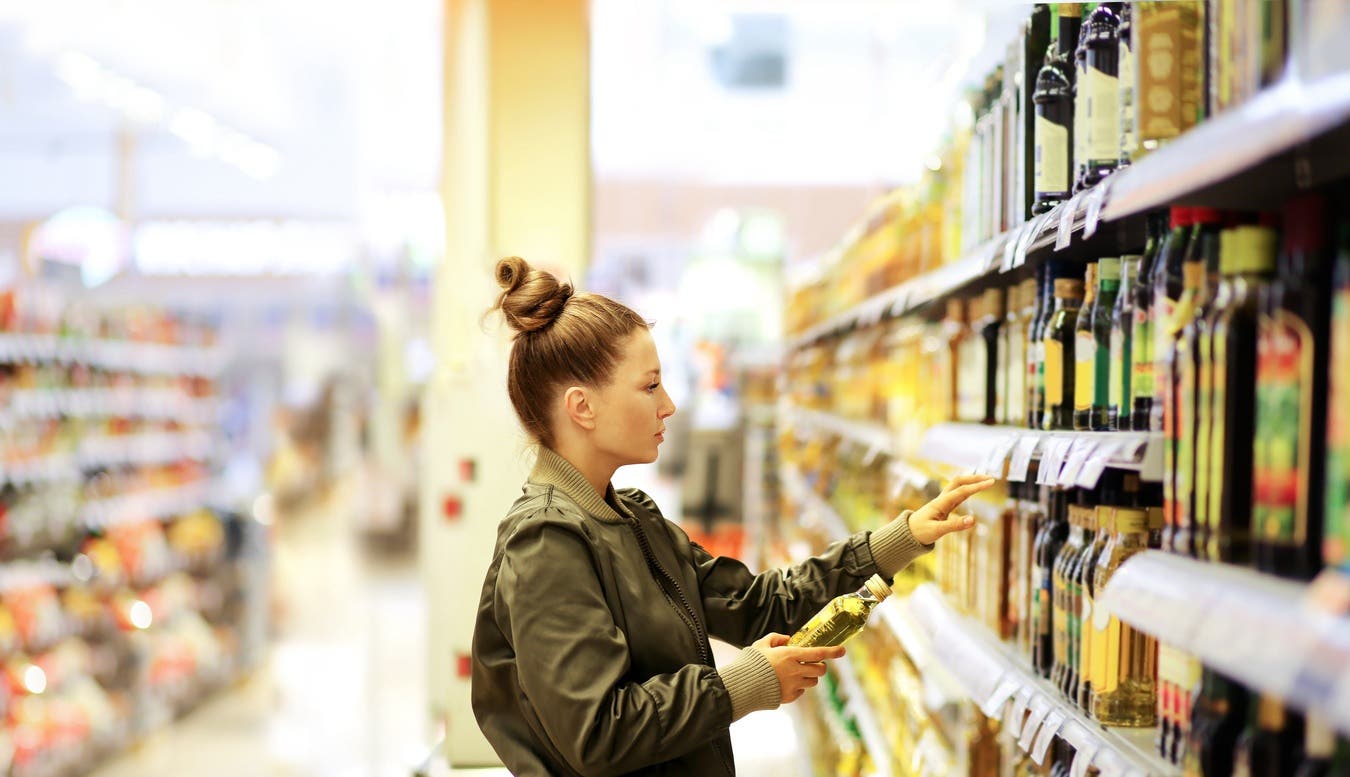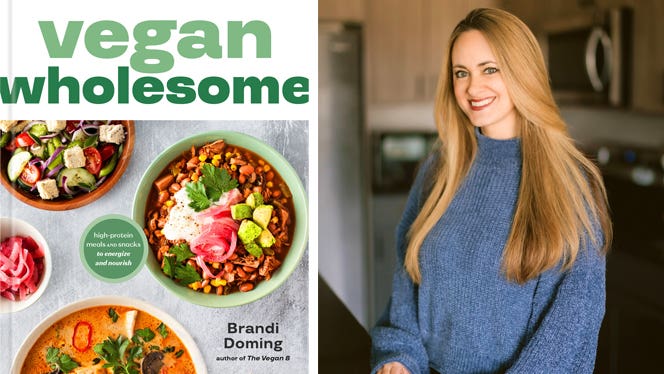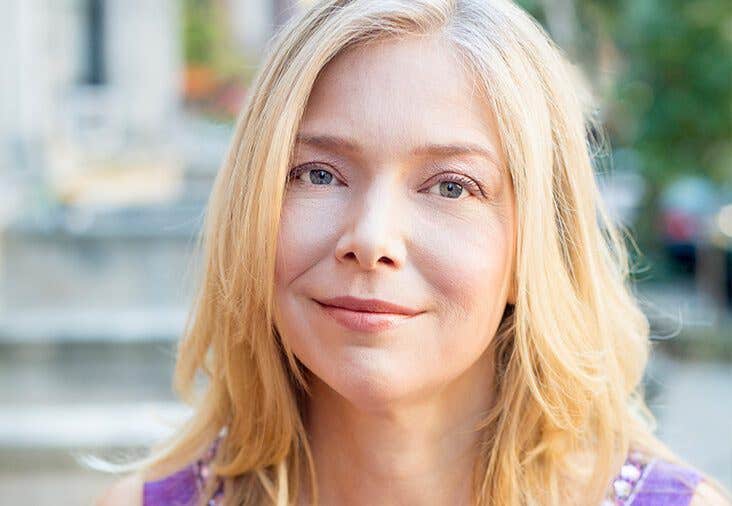For the past several decades, mortality rates for colorectal cancer have been on the decline, thanks in part to an increase in colonoscopies and other screening procedures. Having been diagnosed with stage 3 colorectal cancer at age 36, I’ve had more than half a dozen colonoscopies in the past 10 years to prevent a recurrence of the disease. Each time, my doctor has asked me to follow a low-fiber diet in the days leading up to the procedure. The first time I was handed the list of foods I was allowed to eat on a low-fiber diet, I was shocked. I was not to consume most raw fruits or vegetables, nuts, legumes, or whole grains. Instead I was advised to eat animal-based foods such as meats, dairy products, and eggs. As a vegan, I was at a loss. What could I eat?
Fortunately, it turns out that there are plant-based foods that fit the bill for a pre-colonoscopy diet. If you’re vegan and prepping for a colonoscopy, read on for a list of what you can eat, and get the scoop on why a low-fiber diet is part of the prep process.
What Is a Colonoscopy?
A colonoscopy examines the colon (large intestine) and rectum for abnormalities using a colonoscope—a thin, flexible tube fitted with a small camera. It allows the detection and removal of small growths, known as polyps, that are the precursor to colorectal cancer. In this way, the procedure prevents the disease from developing. The American Cancer Society generally recommends that people have a colonoscopy at least once every 10 years, starting at age 45.
Preparing for a Colonoscopy
For a colonoscopy to be successful, one’s large intestine must be thoroughly cleaned out beforehand. In order to achieve this, patients are typically put on a restrictive food plan for approximately five days leading up to the procedure. A low-fiber, or low-residue, diet is usually used as part of this preparation process, though there may be exceptions.
Will Bulsiewicz, MD, is a board-certified gastroenterologist and author of the book Fiber Fueled. “We always recommend the five day low-fiber diet, but if a colonoscopy needs to be done urgently we will not delay it based upon the low-fiber run-in,” he explains. “Our goal is a high-quality bowel prep because that is what allows us to do our job. Any compromise of the bowel prep is a compromise of the exam quality and therefore increases the risk of missed polyps.”
Why Low-Fiber?
Fiber is an essential part of a healthy diet. It feeds the “good” bacteria in our guts and, in the case of insoluble fiber, passes through the large intestine undigested, attracting water and helping to form bulky, soft stools. But the very attributes that make fiber so good for us can present obstacles when it comes to colonoscopies. The goal of colonoscopy preparation is to eliminate as much residue as possible from the colon by reducing bowel movements altogether.
A big fan of fiber, Bulsiewicz usually advocates a fiber-rich diet packed with fruits, vegetables, whole grains, legumes, nuts, and seeds to promote gut health and prevent disease. He says that colonoscopy prep is a unique situation in which he advises patients to temporarily eat low-fiber foods, such as white rice. “Generally speaking, I would prefer for my patients to [eat] whole grains. But when you’re preparing for a colonoscopy what we want is stuff that’s going to wash out very easily, and so avoidance of the insoluble fiber that you get from whole grains is actually beneficial.”
He explains that it’s important to be able to examine the totality of the colon. “If I could see 97 percent of the colon—if there’s 3 percent of it that I couldn’t examine—then how can I say that you’re totally safe?”
Low-Fiber (Low-Residue) Vegan Foods to Eat Day 6 through Day 2 Prior to a Colonoscopy
Although many low-fiber diet pamphlets recommend eating animal products, it is possible to prepare for a colonoscopy while staying completely vegan. Bulsiewicz approves of the following plant foods for the low-fiber diet leading up to a colonoscopy. Be sure to go over this list with your doctor during your pre-colonoscopy consultation.
- Apricots (peeled)
- Asparagus tips (well-cooked)
- Cantaloupe (ripe)
- Carrots (peeled and cooked until soft)
- Honeydew melon (ripe)
- Mushrooms (well-cooked)
- Papaya (ripe)
- Peaches (ripe, peeled)
- Potatoes (white varieties; peeled and cooked until soft)
- Tofu
- White pasta
- White rice
The Day Before a Colonoscopy
Commonly, a clear liquid diet will be prescribed for the final day of the colonoscopy preparation, during which no solid foods may be eaten. On this last day before the procedure, plant-based liquids including coconut water, teas, light-colored (pulp-free) juices, and vegetable broth may be consumed throughout the day.
After a Colonoscopy
When returning to eating following a colonoscopy, Bulsiewicz recommends beginning slowly before diving back into your typical routine. “Have one gentle meal and then you jump back into your regular diet,” he says. He suggests patients avoid large portions of “junk” food, and heavy meals immediately following the procedure.
If you’re like 95 percent of Americans, you aren’t getting enough fiber in your regular diet. Fiber-rich diets appear to be a powerful tool in preventing colorectal cancers. Several studies have found that the more fiber that study participants consumed, the less likely they were to develop colon cancer. The reason for this relationship is an area of ongoing research, but it may be because high-fiber foods help people to feel full without consuming too many calories, leading to leaner BMIs and lower rates of obesity. (Excess weight and obesity are risk factors for a number of cancers.) Fiber also helps waste move efficiently through the lower digestive tract, reducing the colon’s exposure to cancer-causing compounds and other irritants.

Related News
Save 40% This WeekOn Forks Meal Planner

Forks Meal Planner takes the hard work out of making nutritious meals the whole family will enjoy.
SAVE $200 ON OUR ULTIMATE COURSE

Join our best-selling course at a new lower price!


